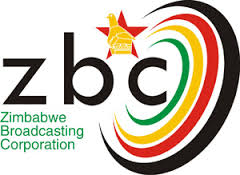Story by Bruce Chahwanda, Political Editor
THE Government has set up more than 1 000 thriving rural business units, with almost 3 000 boreholes having been sunk to provide clean water to rural communities across the country.
The Second Republic is forging ahead with transforming people’s lives in communities, with more than 1 000 business units having been set up across the country, supported by borehole water.
The programme has eight key areas encompassing rural industrialisation programmes, rural development, village business units and borehole sinking projects.
Speaking to ZBC News in Harare, the Permanent Secretary in the Ministry of Lands, Agriculture, Fisheries, Water and Rural Development, Professor Obert Jiri said the programme is in full swing across the country.
“Under that programming, we currently have drilled more than 2 960 boreholes that have been drilled. Of those, 1 168 are equipped with either bush pumps or solarized. And we have also drilled boreholes at chiefs’ homesteads to form the chiefs’ village business units, and as well as at schools.
“We have so far covered 44 chiefs of the 293 chiefs. We have also covered 21 schools, which now have these school business units.
“We are progressing with the programming of village business units, and wherever we have established these, the borehole comes first, and then the equipment follows, including the establishment of the business itself. So it’s a work in progress, and currently, we have 248 that are under construction countrywide, which we envisage that will be delivered into the country in the next week or two,” he said.
The rural development programme is transforming thousands of lives in communities as some projects are market driven.
“In terms of the impact of those that you have set up, how do you rate it at the moment? So imagine in a village with maybe 1 000 households, and you establish a village business unit where the majority of those villagers come and grow vegetables, and they are able to sell them.
“They are able to get water for drinking. They are able to provide water for their livestock.
“They are able to use the by-products for feeding their livestock. Imagine such a village, whether it will ever go hungry. So we have seen tremendous improvement in terms of livelihoods, specifically the availability of nutritious vegetables, the availability of additional incomes by sale of those vegetables.
“We have seen lives being transformed. We have seen communities where school pupils have not been sent off from school because now the parents can afford school fees. So, the impact of these village business units has been really tremendous in all communities that they have been established,” said Professor Jiri.
A total of 44 chiefs have so far benefitted under the programme, with 21 schools having established income generating projects, while 248 other business units are being established across the country.





